It is our belief that training is an ongoing process and, therefore, it is a key element in the organization and culture of the Firm.
Introduction to the Firm
New associates, patent agents and technology specialists are provided, upon their arrival, with all of the tools required by a patent practitioner. Also, meetings are scheduled to introduce each new professional staff member to every administrative department of the Firm. On the first day of employment, associates meet with our Patent Administrator, who provides preliminary instructions in Firm policies relating to client procedures and patent practice. New members of the professional staff also are given a copy of an extensive manual that is maintained by the Practice and Procedures Committee, which oversees the Quality Review, Foreign Filing and Docketing Departments.
Training
Training takes many forms at Hamilton Brook Smith Reynolds. Associates have direct and daily contact with principals and other experienced personnel. Under the supervision of a principal or senior associate, associates typically are given responsibility for patent application portfolios and for their prosecution and strategic management, providing associates with a more complete picture of the process. In this way, associates develop the expertise and skills required to advise clients and assist in developing, protecting and managing intellectual property assets. As part of this process, associates work directly with clients, and become familiar with the technology, the scope of patent protection sought and the business goals of each client. Members of each supervisor/associate team are mutually supportive and together provide superior client service in a manner that accelerates associate training.
Mentoring
Mentors are assigned to new members of the professional staff. In order to promote open communication, the program is relatively unstructured. Representative issues considered to be within the scope of this program include: advice in management of work load, assistance in prioritization of docketed items and determination of proper channels of communication.
Continuing Education
The Firm maintains an ongoing program of in-house seminars on recent developments in case law, changes in statutory and regulatory provisions and other related topics. Frequently, seminars are given by the associates. However, seminars also are given by principals and administrative department heads on various topics in intellectual property, and Firm practice and procedure. Outside speakers are also invited to present seminars on topics, including effective advocacy writing, time management skills and foreign patent practice. When there are substantial revisions in United States patent law, Hamilton Brook Smith Reynolds will typically sponsor off-site meetings at which representatives of the United States Patent and Trademark Office will speak. Clients are invited to attend such meetings.
The Firm supports the development of its professional staff by funding continuing education, including attendance at courses and conferences related to intellectual property law and technology. Law school tuition is provided for patent agents and technology specialists. Generally, enrollment is in evening, part-time programs, although, under exceptional circumstances, full-time attendance during the day has been provided.
Development of Responsibility
Professional staff members are expected to work in close coordination with each other and with the several departments that have been set up to support them. Performance evaluations of associates are based on many factors, primary among them is product quality and efficient utilization of resources. Performance evaluations are given at least annually, but also upon request. However, it is our belief that individualized day-to-day guidance provides better feedback than formal reviews, and that performance evaluations generally should be redundant to information provided by supervisors, particularly principals, during the course of the year.
Transition to Principal
Many criteria are included when considering individuals for principal status. However, they essentially are the same as those considered when training and evaluating associates, patent agents and technology specialists, in that responsibility is delegated commensurate with demonstrated ability. Candidates must exhibit resourcefulness, initiative, and be achievement-oriented. Willingness to assume responsibility and to be generous in their support of others, in addition to excellence in productivity, work quality, and client management, are critical components.


